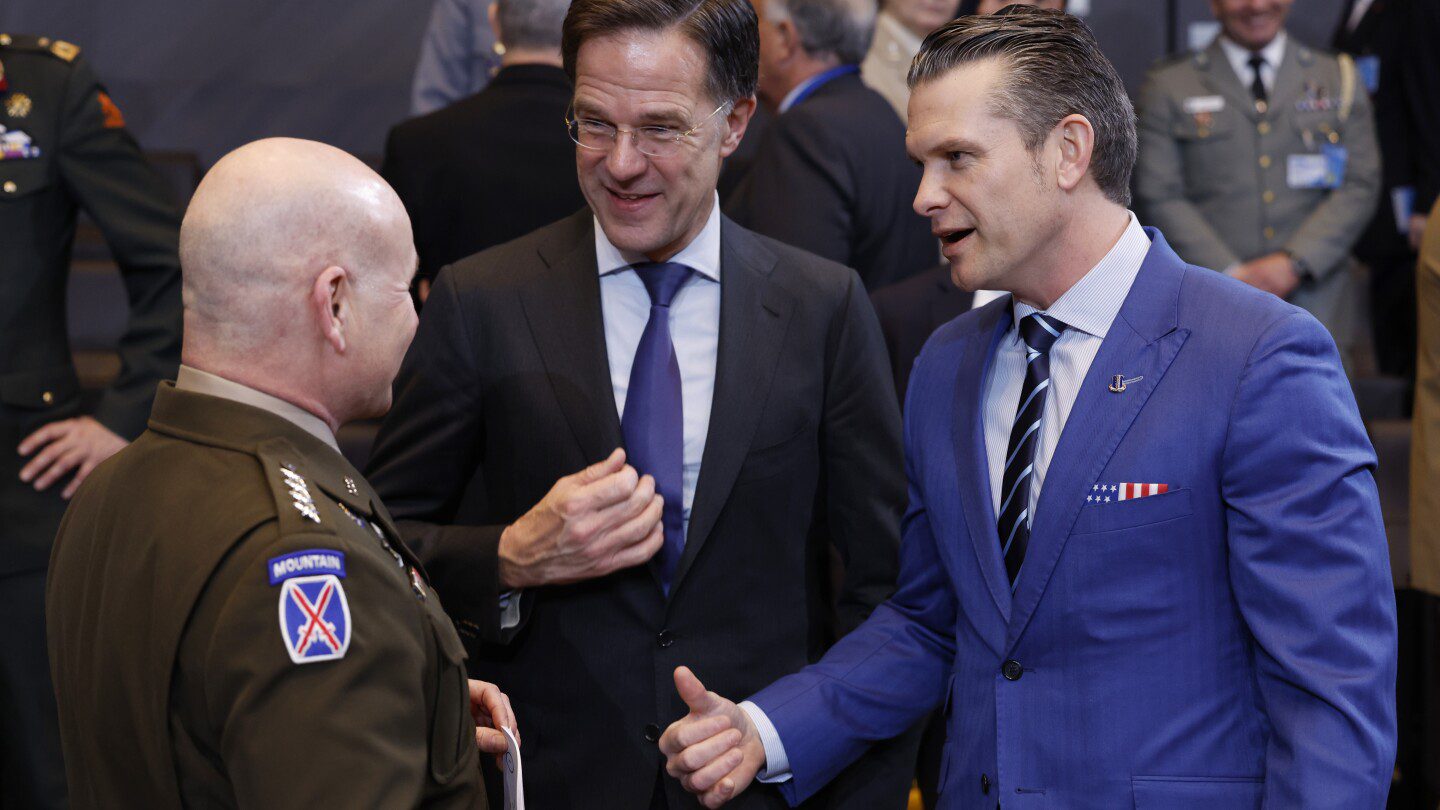
Title: NATO Allies Assert Ukraine’s Role in Peace Negotiations Amid U.S. Talks with Russia
Brussels (AP) — During a meeting in Brussels, several NATO members emphasized the importance of including Ukraine and Europe in ongoing peace discussions regarding the conflict with Russia. U.S. Defense Secretary Pete Hegseth responded to claims that the U.S. is neglecting Ukraine by asserting that conversations about peace should involve the war-torn nation directly.
The European governments expressed significant concern after the Trump administration suggested plans for direct negotiations with Russia about Ukraine’s future, potentially excluding Kyiv from these critical discussions. They affirmed that Ukraine should not be sidelined in the peace process and reiterated the necessity for Europe to ensure its own defense and that of Ukraine against future Russian actions.
"There can be no negotiations regarding Ukraine without Ukraine’s participation. Its voice must be central to any discussions," stated U.K. Defense Secretary John Healey, addressing reporters as NATO’s defense ministers convened to deliberate on the situation.
German Defense Minister Boris Pistorius stressed that Europe’s involvement in the negotiations is essential, especially if it is to play a significant role in establishing a lasting peace framework. "It’s straightforward; Europe will face the direct consequences of these negotiations," he remarked.
Hegseth denied accusations of betrayal, emphasizing the importance of a collaborative approach to peace that recognizes global investment in a resolution. Following discussions with both Russian President Vladimir Putin and Ukrainian President Volodymyr Zelenskyy, Trump indicated he might meet with Putin soon, possibly in Saudi Arabia.
The European Union’s foreign policy chief, Kaja Kallas, expressed her astonishment at the concessions being discussed with Russia even before substantive negotiations had started. She cautioned against preemptively making concessions, stating, "We shouldn’t give them everything they want before negotiations have even launched. This is appeasement, which has never been effective."
Hegseth noted that the ongoing conflict should serve as a wake-up call for NATO allies to increase their defense spending. Although 23 out of the 32 NATO member countries were expected to meet the guideline of allocating 2% of their GDP to defense, a significant portion has not yet reached this benchmark.
French Defense Minister Sébastien Lecornu characterized the ongoing discussions about defense expenditure as a "false debate," pointing out that many European nations are already increasing arms purchases and military funding to assist Ukraine.
He also raised concerns about the future of NATO itself, questioning whether it will remain the most formidable alliance ten or fifteen years from now, particularly as U.S. priorities increasingly shift towards Asia.
NATO Secretary-General Mark Rutte emphasized the significance of reaching a robust agreement that guarantees that Putin understands there will be no further attempts at territorial acquisition in Ukraine.
Swedish Defense Minister Pål Jonson highlighted Europe’s substantial investment in Ukraine, noting that European nations provided around 60% of military aid to Kyiv last year. He insisted that Europe needs to play an active role in the security arrangements for Ukraine, especially given U.S. expectations for increased European responsibility.
Estonian Defense Minister Hanno Pevkur pointed out that the EU has been instrumental in imposing sanctions on Russia and will be expected to contribute to the reconstruction of Ukraine post-conflict. "We must be involved; otherwise, any peace achieved will lack durability," Pevkur stated emphatically.
___
Contributions to this report were made by Geir Moulson in Berlin.









